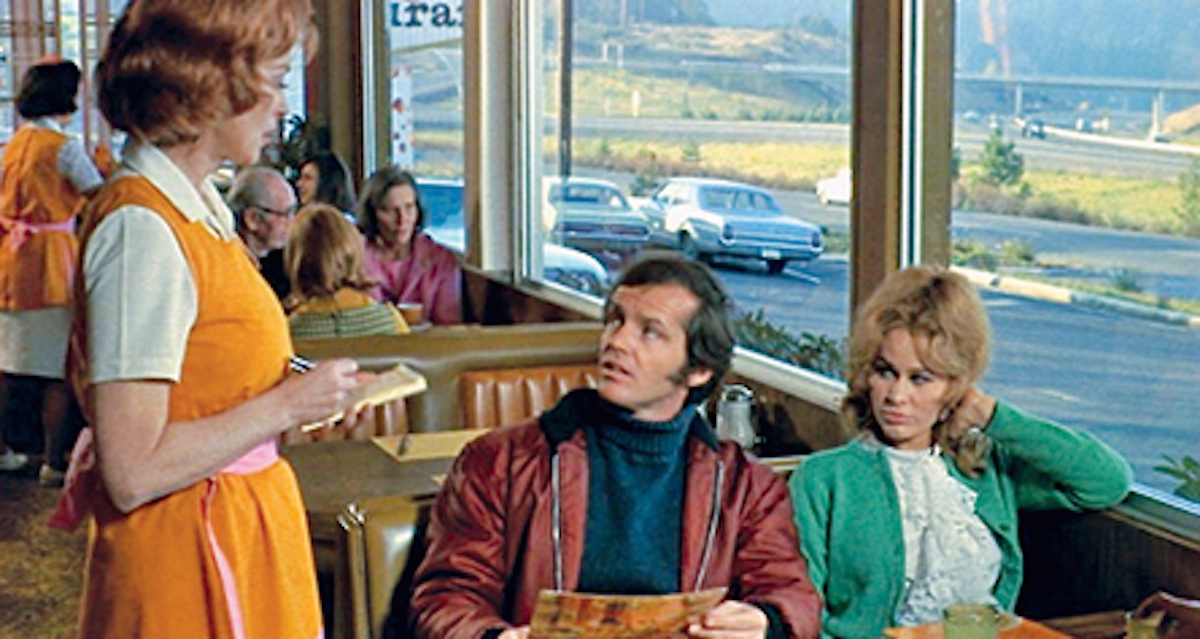

The bottom photo is Jack Nicholson in his famous restaurant scene from Five Easy Pieces, made in 1970. Nicholson plays a failed, or self-defeated, concert pianist working a series of blue-collar jobs. It’s fait to say his character has a lot of repressed anger over his life and his family situation.
He wants toast, which isn’t on the menu, and which the disinterested waitress refuses to serve him. Nicholson gets increasingly frustrated and angry as he tries to order it through a variety of maneuvers. Eventually, furious beyond all proportion to the problem, he insults the waitress and explodes in rage, leaving the restaurant.
The top photo is from a less well-known movie, When Tomorrow Comes, from 1939. Charles Boyer is a famous concert pianist who also, as the film will out, has a difficult family situation.
Here, he’s trying to order a couple of slices of American cheese. Similarly, the restaurant doesn’t serve cheese except on apple pie, which Boyer detests. He’s also a little frustrated, and asks the waitress, slyly, if he can order the pie, and just take the cheese. Unlike Nicholson, Boyer doesn’t insult the waitress – who clearly wants to help but doesn’t know how – and instead is aided by Irene Dunne, also a waitress in the restaurant.
The 1930s were a tough time, and even in 1939, the economy hadn’t really recovered. Dunne’s character makes a rousing speech at a union meeting, encouraging the reluctant waitresses to strike. But there’s nothing of Nicholson’s nasty, vicious rage or the impatient indifference of his waitress in When Tomorrow Comes, probably because it’s more melodrama than psychodrama.
But one can’t discount the temper of the times, either. Nineteen thirty-nine was an angry year, like 1970, but people were more hopeful and felt less powerless. Nicholson’s temper tantrum is what people do when they feel they have no choices. Boyer is mature enough not to take his home situation out on innocent bystanders. Indeed, anyone acting like Nicholson in 1939 NY would have been carted off to jail, if not Bellview.
Five Easy Pieces was probably the better film. When Tomorrow Comes is entertaining, but it wasn’t even the best Boyer-Dunne melodrama of 1939. That would be Love Affair, later remade as An Affair to Remember with Cary Grant and Deborah Kerr, emphatically not remade as Sleepless In Seattle. Both Love Affair and Five Easy Pieces got Oscar nominations for Best Picture, and for Leading and Supporting roles. But Boyer is more pleasant to watch, especially since his character doesn’t insist on destroying every life he comes in contact with, including his own. He just wants some cheese.



